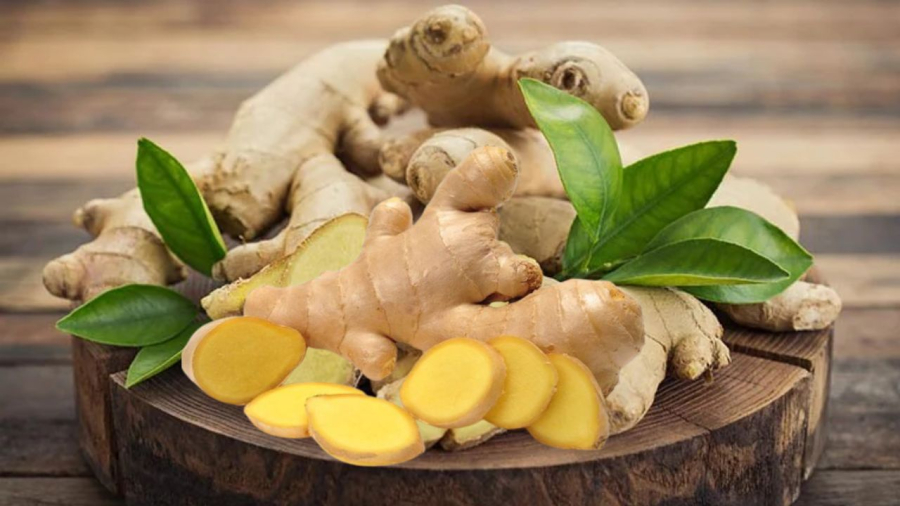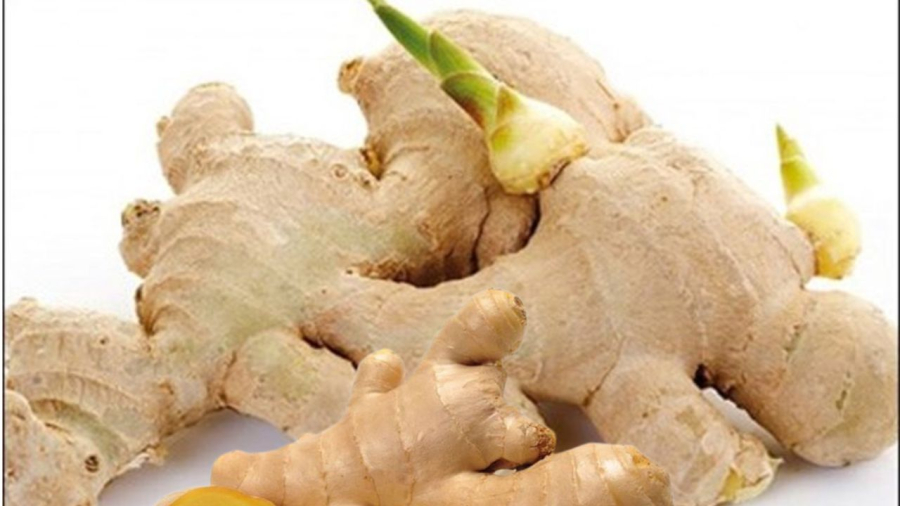Ginger is a herb and a popular culinary spice with a multitude of health benefits. Regular consumption of ginger can help reduce flu-like symptoms and soothe coughs. It improves blood circulation, promoting clear and glowing skin, aids in weight loss, and relieves indigestion and bloating. Ginger is also beneficial for treating joint inflammation and motion sickness.
Additionally, ginger is a powerful antioxidant that helps protect cells and supports cancer patients. It is effective in combating nausea and low blood pressure. Ginger has been valued as a medicinal herb for centuries, and traditional wisdom recommends consuming it in the morning for optimal benefits. The folk saying, “A few slices of ginger in the morning negates the need for medicine,” highlights the importance of this root in natural healing.
However, you may notice that stored ginger tends to sprout. Is it safe to consume ginger that has started to grow?

The Health Benefits of Ginger
Is it safe to eat ginger that has sprouted?
When ginger sprouts, a significant amount of its nutrients are diverted to nourish the growing sprout. As a result, the ginger root may lose some of its flavor and texture. Additionally, the sprouting process often occurs in damp conditions, which can lead to the formation of black spots and mold. If mold is present, it is particularly hazardous as it can produce toxins. Consuming moldy ginger regularly increases the risk of cancer and food poisoning.
Furthermore, rotten or sprouted ginger can produce sulfur compounds, which are considered toxic to the liver. When crushed or sprouted, the ginger root contains the harmful substance shikimol.

Exercise Caution with Sprouted Ginger
It is best to avoid consuming ginger that has sprouted, especially if the shoots are well-developed. These sprouted roots can be planted to grow into new ginger plants.
When purchasing ginger, avoid roots with shiny, smooth skins as they may have been treated with chemicals. Instead, opt for gnarly, dull-looking roots. Break a piece to assess its aroma and the texture of the flesh, ensuring it is not overly fibrous. Smaller, grayish roots with a rough texture often pack more flavor and pungency than larger, bright yellow roots.
Ginger is an essential spice and a valuable folk medicine that can be incorporated into daily routines. However, it is crucial to be mindful of how to select and use ginger appropriately.
Exploring the Benefits of Negative Ion Technology for Businesses
 Benefits of Negative Ion Technology for Businesses’>
Benefits of Negative Ion Technology for Businesses’>Are you curious about the awesome power of negative ion technology? Find out how it works and how it can improve your life with Dien May XANH’s in-depth exploration of this innovative technology!





































